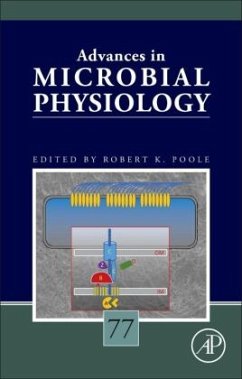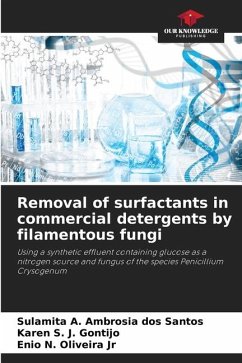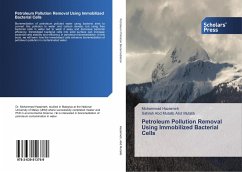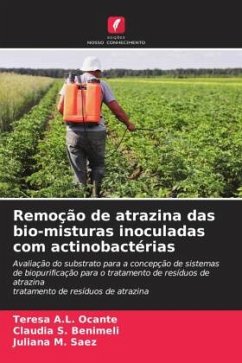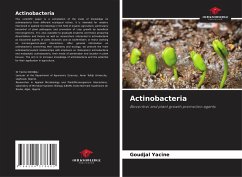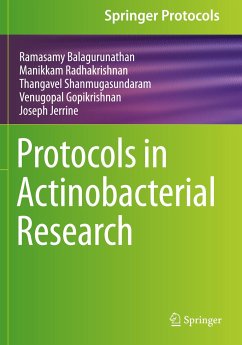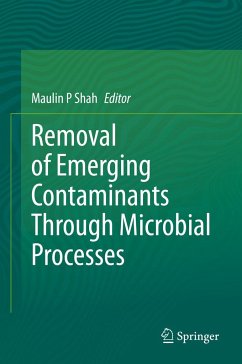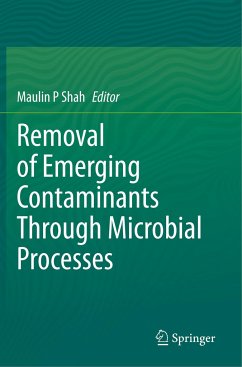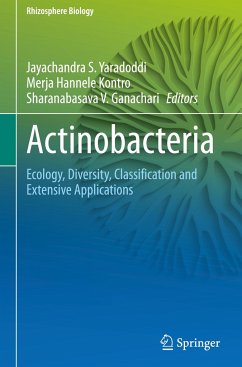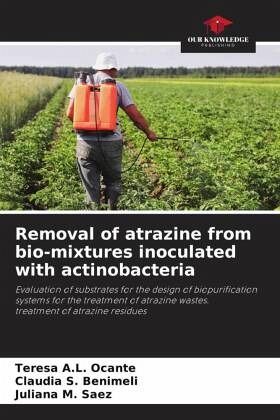
Removal of atrazine from bio-mixtures inoculated with actinobacteria
Evaluation of substrates for the design of biopurification systems for the treatment of atrazine wastes.treatment of atrazine residues
Versandfertig in 6-10 Tagen
29,99 €
inkl. MwSt.

PAYBACK Punkte
15 °P sammeln!
Atrazine is a selective herbicide used to control weeds in sugarcane, corn and sorghum crops. It has high adsorption in soil and moderate solubility in water, which increases its potential to contaminate different environments. Specific contamination by pesticides has been addressed through the implementation of biopurification systems, which consist of a construction designed to retain and degrade pesticides, and consist of three components: a clay layer, a bio-mixture and a plant cover. The bio-mixture is the most important component and consists of a lignocellulosic substrate, a humus-rich ...
Atrazine is a selective herbicide used to control weeds in sugarcane, corn and sorghum crops. It has high adsorption in soil and moderate solubility in water, which increases its potential to contaminate different environments. Specific contamination by pesticides has been addressed through the implementation of biopurification systems, which consist of a construction designed to retain and degrade pesticides, and consist of three components: a clay layer, a bio-mixture and a plant cover. The bio-mixture is the most important component and consists of a lignocellulosic substrate, a humus-rich component and soil (50:25:25 % vol.). Bioaugmentation of bio-mixtures with microorganisms capable of degrading pesticides is an interesting strategy to optimize the efficiency of the system. In this sense, actinobacteria stand out for their potential to biodegrade pesticides, their metabolic diversity and their ability to colonize different substrates.



